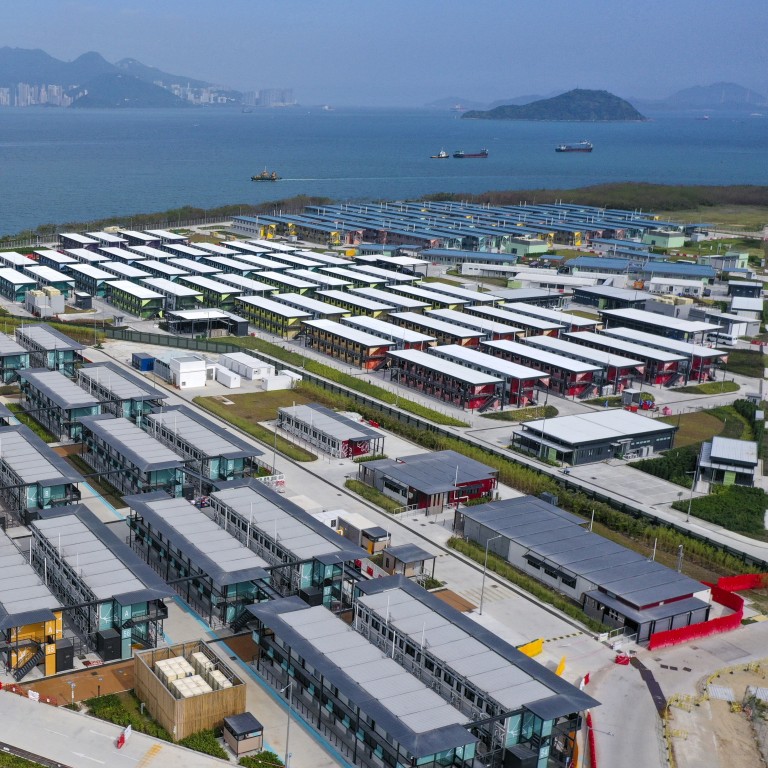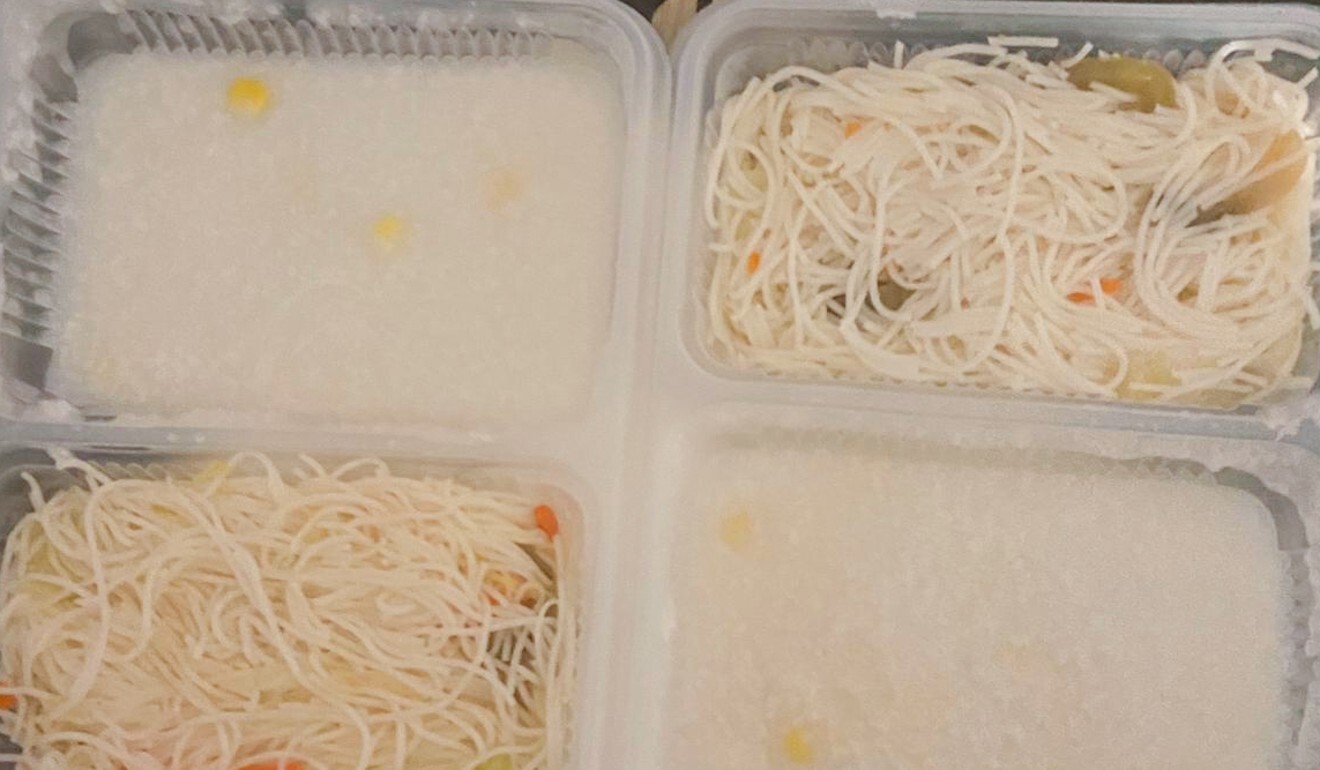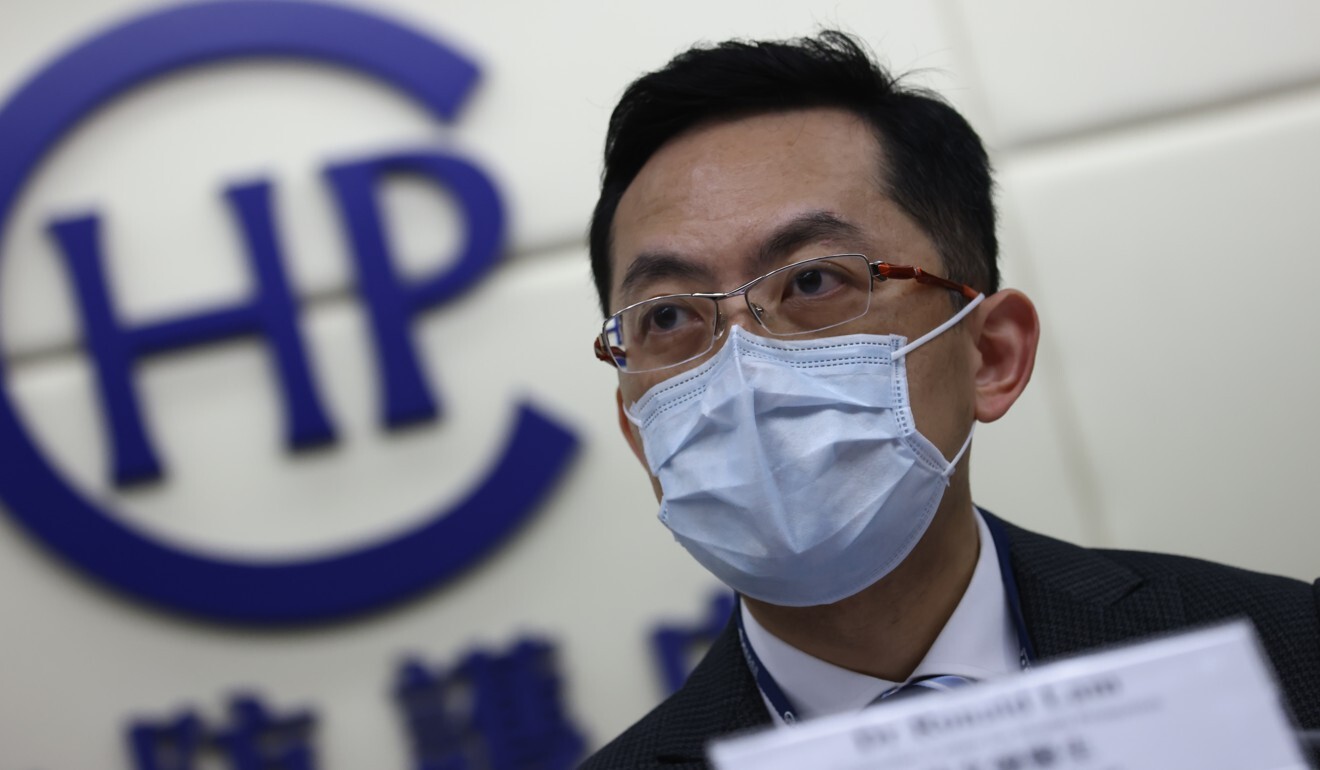
Coronavirus: first batch of Hong Kong residents in quarantine camps released under eased rules; city confirms 5 new imported cases
- Authorities admit to food hygiene issue at Penny’s Bay facility, say caterer has been replaced and will answer to contract terms
- Some 2,000 residents originally slapped with quarantine orders after mutated virus cases were found in their buildings are expected to be released in batches following tests
The first batch of people among some 2,000 Hong Kong residents quarantined in camps were allowed to go home on Saturday afternoon under relaxed Covid-19 rules, the Post learned, while authorities had earlier admitted there were food hygiene issues at one facility.
The long-awaited news by some frustrated residents came as the city confirmed five new imported coronavirus cases – involving four arrivals from Indonesia and one from Spain – and no local infections.
The city’s tally of coronavirus cases stood at 11,806, with 210 related deaths.
The government on Friday announced the eased rules, stating those serving a 21-day quarantine after cases of mutated coronavirus strains were found in their blocks could leave isolation facilities in batches if they tested negative for Covid-19.

Earlier on Saturday, an official memo received by a resident under quarantine at Penny’s Bay asked people to pack up after lunch, and told them staff would come to their door an hour before departure. Transport was arranged for them.
By 4.30pm, some residents told the Post they had returned home. It was not known how many among the 2,000 people quarantined across government facilities in the city were released in the first group.
Residents under government quarantine and expecting an early release spanned occupants of Royalton I in Pok Fu Lam, a block at Caribbean Coast in Tung Chung, Kornhill in Quarry Bay and Allway Gardens in Tsuen Wan.

“Everyone just wants to get out,” said Yeung, a Caribbean Coast resident who has been at Penny’s Bay since April 30. “We were told that we can only leave after receiving a phone call from the health authorities.”
A woman who only gave her name as Beverley, and who is also in the same camp, said her husband had experienced stomach pain after eating food provided by the facility earlier.
Tsuen Wan district councillor Chiu Yan-loy said he received complaints from at least 16 residents of Allway Gardens indicating they felt unwell after eating supplied meals at the camp on Friday.

The quarantine centre had broadcast a message to all residents on Friday night, confirming that “because of the food hygiene problem, we will provide cup noodles instead of the meal boxes”, while apologising for the inconvenience caused.
Coronavirus: no jab, no job, and no fun? Anger over ‘vaccine discrimination’
A spokesman from the health department said it had immediately replaced vendor Danny Catering Service Limited and would seriously follow up with the company on its food quality in accordance with contract terms.

Under new government measures revealed on Friday, residents in buildings linked to mutated virus strains do not have to serve 21 days of quarantine as initially required, but they will be tested four times over a self-monitoring stretch.
But those in the same household as an infected person, or staying in environments such as subdivided flats, will have to undergo quarantine, regardless of whether they have been vaccinated.
Explaining the eased policy, Centre for Health Protection controller Dr Ronald Lam Man-kin said the latest risk assessment showed all residents of Parkes Building in Jordan, where the first local variant case was identified, had tested negative over their 21 days of quarantine, which ended on Friday.

Professor David Hui Shu-cheong, a government adviser on the pandemic, told a Saturday radio programme health authorities had summed up previous experience and believed that quarantine facilities would soon be exhausted if residents of entire buildings had to move out. It would also cause inconvenience to people who were not close contacts of cases, he added.
“There is still an invisible transmission chain in the community, but due to social-distancing measures and the public’s awareness of hygiene, there are no signs of widespread outbreaks of the coronavirus yet in the community,” he added.

